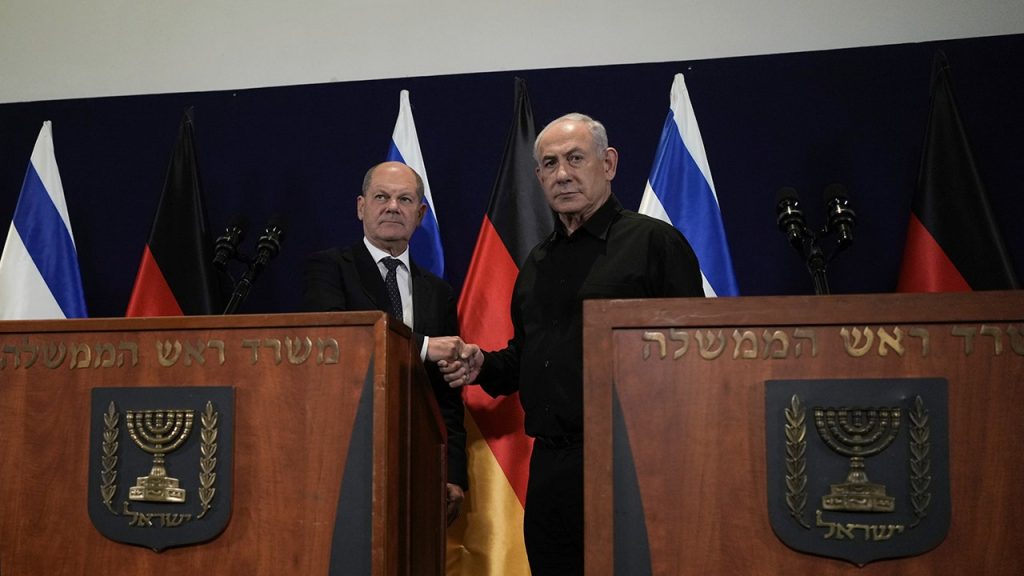The Israeli Prime Minister Benjamin Netanyahu’s spokesperson criticized German Chancellor Olaf Scholz’s administration for stating that they would arrest and deport Netanyahu if the International Criminal Court issues a warrant for his detainment. The German government confirmed that they would abide by the law in this scenario. This decision has raised concerns about Germany’s failure to learn from the Holocaust, as the Nazis had arrested, deported, and murdered six million Jews. The targeting of Netanyahu has been viewed as a betrayal of the German responsibility to support Israel and combat antisemitism.
Rabbi Abraham Cooper of the Simon Wiesenthal Center in Los Angeles condemned the idea of a German government arresting the democratically elected Prime Minister of Israel based on false allegations of war crimes. Israel’s Ambassador to Germany, Ron Prosor, criticized the Chief Prosecutor of the ICC for equating a democratic government with Hamas and delegitimizing Israel and the Jewish people. There are calls for Germany to uphold its commitment to the existence and security of Israel, as articulated by former Chancellor Angela Merkel’s Staatsräson. The controversy has highlighted divisions between left-of-center and conservative political parties in Germany.
Germany, a strong supporter of the ICC, has come under scrutiny for issuing arrest warrants for Netanyahu and Israeli defense minister Yoav Gallant. Netanyahu has called these actions an example of the “new antisemitism” and accused the ICC chief prosecutor of bias against Israel. The founding of the ICC was aimed at preventing crimes against humanity, but critics argue that it has been misused to target Israel, the only democracy in the Middle East, in its fight against Hamas. The situation has reignited debates over the role of the ICC and its handling of conflicts in the region.
In 2022, Chancellor Scholz faced criticism for not speaking out against Palestinian Authority President Mahmoud Abbas’s antisemitic comments during a speech in Berlin. Abbas’s distortion and minimization of the Holocaust were met with silence from Scholz, fueling concerns about Germany’s commitment to combating antisemitism. The episode highlighted the delicate balance between supporting Israel’s right to self-defense and maintaining diplomatic relationships with Palestinian leaders. Questions directed at Scholz and German Foreign Minister Annalena Baerbock have gone unanswered, leaving room for speculation about Germany’s stance on the ICC and its handling of conflicts in the Middle East.
The escalating tensions between Israel and the ICC, with Germany caught in the middle, have raised questions about the organization’s mandate and its ability to address complex geopolitical conflicts. As Netanyahu faces the threat of arrest and extradition, the situation has become a test of Germany’s commitment to its historical responsibility to defend Israel and fight against antisemitism. The involvement of political parties from different ends of the spectrum in Germany has added a layer of complexity to the debate over the ICC’s actions and their implications for international relations. The fallout from this controversy may have long-lasting consequences for Germany’s relationship with Israel and its role on the global stage.


